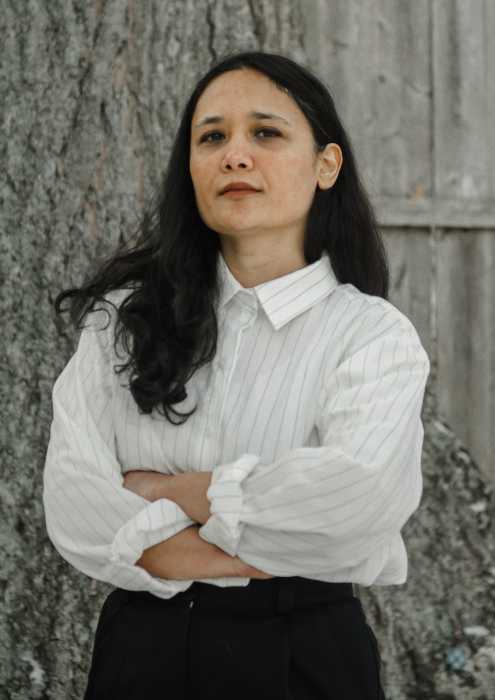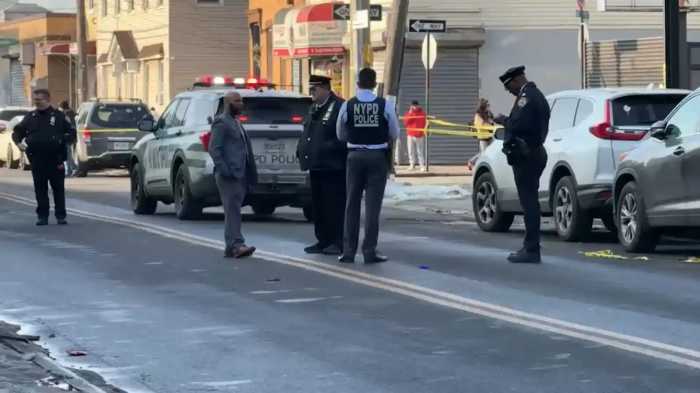Sarahana Shrestha is a first-generation immigrant from Nepal, and the assembly member in District 103, in the mid-Hudson Valley. The 103rd includes Kingston, Woodstock, Rhinebeck, New Paltz, and ten other towns. The first Nepali-American New York State legislator, Sarahana is fighting for a future that must be beautiful.
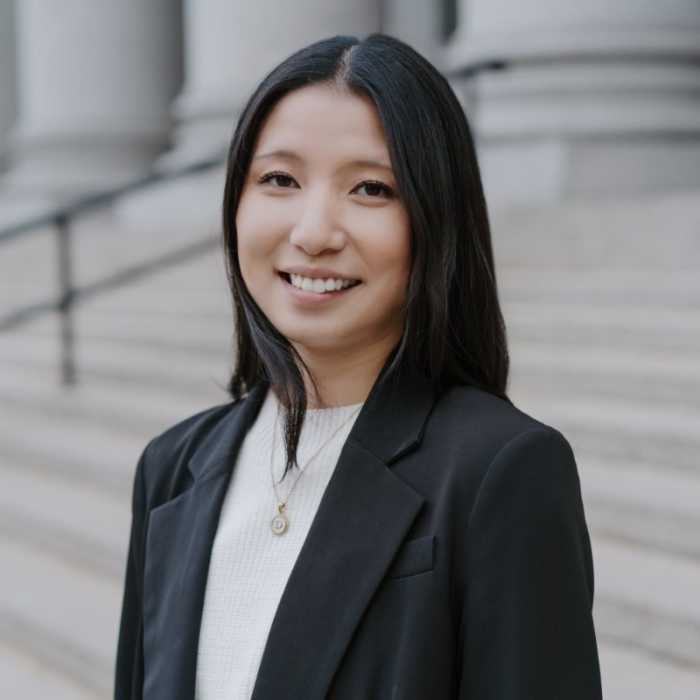
Darci Siegel
Co-President, OCA Asian Pacific American Advocates, New York Chapter

Darci Wen Siegel, co-president of OCA-Asian Pacific American Advocates New York, is dedicated to advancing the social, political and economic wellbeing of AAPI in NYC. As a Chinese-American adoptee and aspiring attorney, Siegel leverages her diverse experiences to drive meaningful change and amplify individual voices affected by domestic violence and other forms of race and gender-based discrimination – particularly within communities of color. Siegel is currently an appeals paralegal at the Kings County District Attorney’s office.
If you could give your younger-self advice, what would it be?
I would remind myself: a) Investing in yourself builds the foundation for continuous improvement and success. b) Don’t forget to trust the process: personal and professional growth is a lifelong journey that demands patience, persistence, and self-belief.
Do you have any event/movie/music suggestions for our readers to check out in celebration of AAPI Heritage Month?
On Sunday, May 5th (3 P.M.-4:30 P.M. EST) OCA National and OCA-New York will be hosting a special virtual conversation with Ava Chin – author, performer, and professor – to discuss her new memoir “Mott Street”, about the impact of the country’s first immigration restrictions, the Chinese Exclusion Act, on four generations of her family in NYC’s Chinatown. Publisher’s Weekly called “Mott Street” “stunning” and The New York Times described it as “sensitive, ambitious, well-reported.”
How has your heritage shaped the person you are today?
As an adoptee shaped both by China’s one-child policy and a New York upbringing, my identity is intricately intertwined with a dedication to uplift marginalized communities through public service, policymaking, and civic engagement. Drawing from my personal journey and professional experiences, I am driven to bridge divides and foster culturally sensitive change. Thus, my commitment lies in uniting community members, advocates, and policymakers to collaborate towards a shared vision of empowerment and inclusivity.
What can New York policymakers do to support the AAPI-community in the short-term? In the long-term?
The AANHPI community is a significant and rapidly growing presence in New York, yet their history and contributions often go unrecognized, leading to a surge in anti-AANHPI discrimination and hate crimes. AANHPI students face heightened bullying and harassment, emphasizing the need for educational reforms advocating for integrating AANHPI history into school curricula to address root causes of violence. By collaborating with communities, educators and legislators, we can ensure institutional recognition of AANHPI experiences in NY.
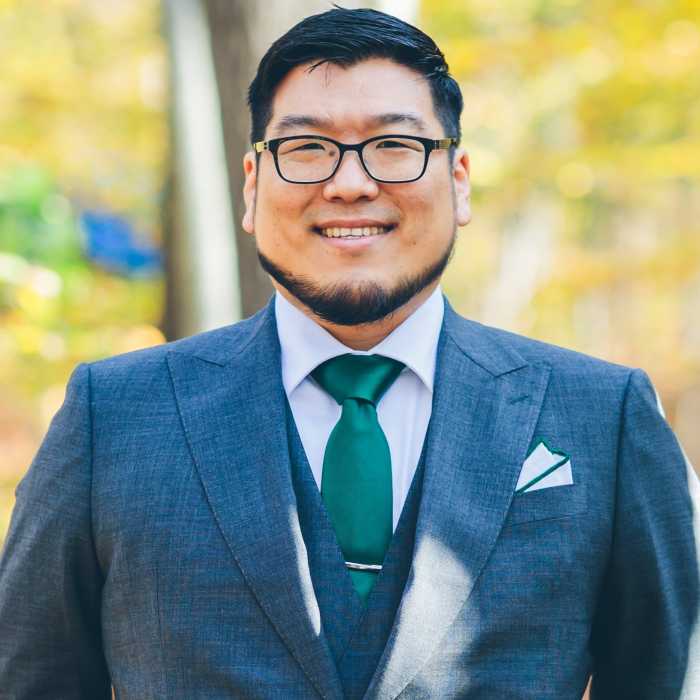
Albert Suh
Vice President, Trip Yang Strategies

Albert Suh is vice president of Trip Yang Strategies, the political strategy firm behind AAPI electoral victories such as Council Member Shekar Krishnan, Assembly Member Steven Raga, and Assembly Member Grace Lee, among many others – statewide, congressional, and advocacy based. Recently, Albert led a pivotal independent expenditure in the NY-3 special election that targeted more than 40 thousand AAPI voters and has been cited by numerous news outlets. Prior to politics, Albert served the city as a prosecutor in the Brooklyn district attorney’s office.
If you could give your younger-self advice, what would it be?
Don’t think you know all the answers or that you have it figured out. Constantly ask questions, re-evaluate what you think you know. Try new and difficult things often. Learn and grow without being afraid of how you are being perceived in your journey. Compare notes, not accomplishments.
Do you have any event/movie/music suggestions for our readers to check out in celebration of AAPI Heritage Month?
“Everything Everywhere All At Once” is one of the greatest films ever made. Also, give “Kim’s Convenience” and “Brothers Sun” some love!
How has your heritage shaped the person you are today?
As a Korean-American, child of immigrants, and a third-culture kid, I think my perspective on what is and what can be are very different. We in America have so much to learn from other countries and cultures. Things can, and should, be so much better than they are. It’s imperative that we strive for better, for a future that works for everyone.
What can New York policymakers do to support the AAPI-community in the short-term? In the long-term?
We need to stop taking AAPI votes and communities for granted. AAPI communities need and deserve deep investment, sustained outreach and communication, and a seat at the table. Disaggregation is hugely important, as is recognizing the depth and breadth of different cultures, politics, socio-economics, and experiences throughout the community; we are not a monolith.
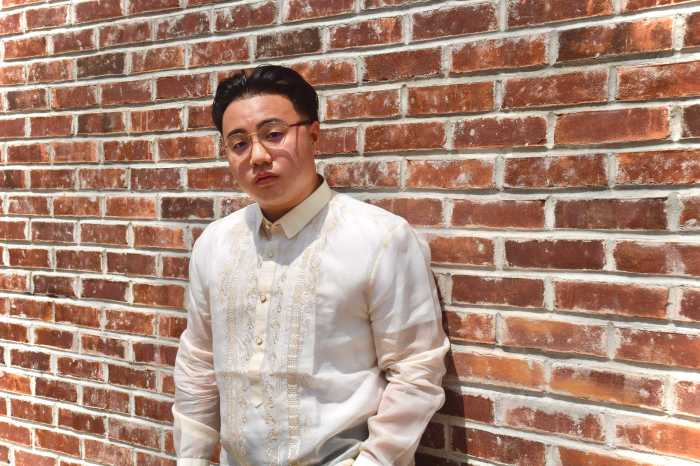
Clifford Robin Temprosa
Director of Public Policy, National Federation of Filipino American Associations, New York

Clifford Robin Temprosa with immigrant roots from the Philippines is the director of public policy at National Federation of Filipino American Associations – New York (NaFFAA). He drives culturally responsive social impact through an AAPI lens on nonprofit leadership, digital strategy, government relations, political strategy, and public policy advocacy. Clifford is a board member of OCA New York, youth advisory board member of Young Invincibles, chair of the QCYD AAPI Caucus, Knight of Rizal, and brother of Delta Epsilon Psi Fraternity, Inc.
If you could give your younger-self advice, what would it be?
Embrace your multi-ethnic identity, do not reject it. You can live a life that is intersectional of heritage and experiences. You do not have to choose between either being an Immigrant or American, Asian or American, and Filipino or Chinese. Most importantly, do not let other people choose your identity for you. The blood and history that runs through your veins is a culmination of generations of struggle, resilience, and sacrifice. Be Unapologetically Asian.
Do you have any event/movie/music suggestions for our readers to check out in celebration of AAPI Heritage Month?
“The Making of Asia America” by Erika Lee, “shows generations of Asian immigrants and their American-born descendants have made and remade Asian American life. A new Asian America has emerged out of community activism and the arrival of new immigrants and refugees. Lee shows, Asian Americans have continued to struggle as both “despised minorities” and “model minorities,” revealing all the ways that racism has persisted in their lives and in the life of the country.
How has your heritage shaped the person you are today?
Just as passions drive behavior, heritage defines your actions. My heritage as a multi-ethnic Filipino and Chinese, and how I navigated a mixed identity growing up in New York has defined my approach to social justice. I was shaped to understand that each and every lived experience is unique, and to truly humanize social justice, a diverse rather than absolutist approach is necessary to impact the lives of each and every individual with unique experiences.
What can New York policymakers do to support the AAPI-community in the short-term? In the long-term?
Policymakers MUST fiscally invest in AAPI communities and pass AANHPI History across New York Public Schools. Fiscal investments will disrupt the wide disparities and deep social inequities which have plagued low-income, working class, and immigrant AAPI families. And by transforming our education system to be culturally responsive, we take steps with intent to illuminate the truth of how AANHPI communities have contributed to the lifeblood of New York, written by us, and for New York.
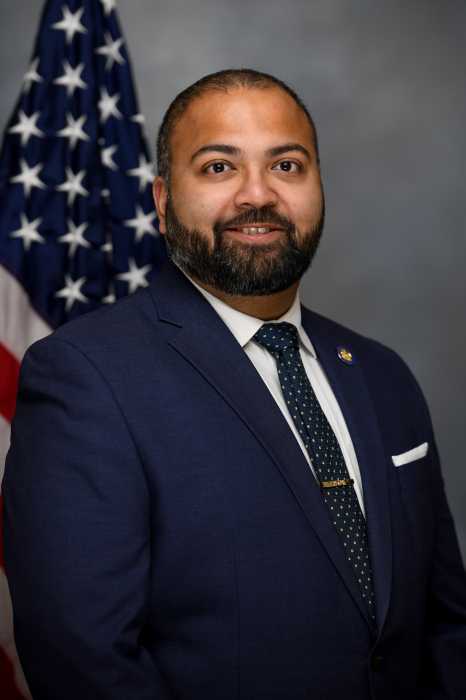
Kevin Thomas
Senator, New York State Senate

Kevin Thomas was elected in 2018 to represent the 6th District in Nassau County, becoming the first Indian-American in New York history to serve in the State Senate. Senator Thomas currently serves as chairman of the Consumer Protection Committee and as assistant majority leader on House Operations. He is a member of the rules, finance, health, judiciary, local government, and agriculture committees.
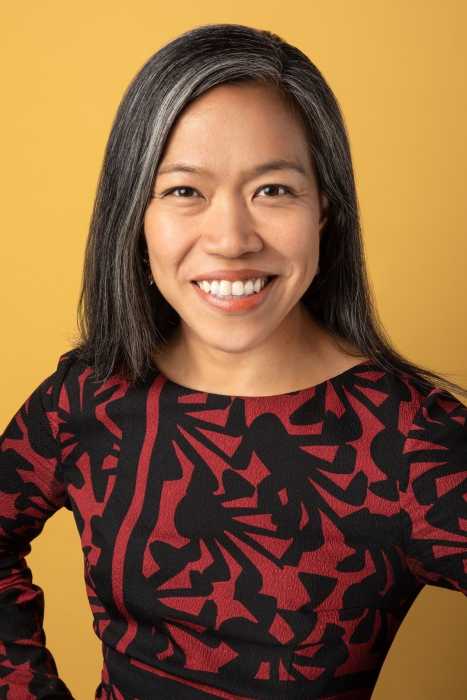
Maria Torres-Springer
Deputy Mayor for Housing, Economic Development & Workforce, Office of New York City Mayor Eric Adams

Maria Torres-Springer is NYC’s deputy mayor for housing, economic development and workforce, spearheading the administration’s efforts to strengthen our economy, create 500,000 homes by 2033, transform public housing, bolster small businesses and connect New Yorkers to family-sustaining jobs. Torres-Springer has a long track record of public service in NYC, having led three city agencies with over 3,000 employees and approximately $2 billion in annual operating budgets, addressing some of the city’s most significant challenges.
If you could give your younger-self advice, what would it be?
You are more effective not despite your lived experiences but because of them. Your ability to serve the public is only strengthened by what you have experienced as a woman, a mother, a member of the AAPI community, someone who grew up poor, and a first-generation college graduate of this country. Use those experiences to stay to spark change and to stay tethered – tethered to the ground, to the mission, and to work that will meaningfully improve people’s lives.
Do you have any event/movie/music suggestions for our readers to check out in celebration of AAPI Heritage Month?
My touchstone lately is “Everything, Everywhere, All At Once.” If you haven’t seen the movie, it’s a phenomenally deranged sci-fi epic, which is also how I would describe the political and regulatory maze we are forced to navigate every day to build new housing in this city, state and country. We need action. At every level. On every facet of the problem. Michelle Yeoh’s power stances in the film inspire me to act.
What can New York policymakers do to support the AAPI-community in the short-term? In the long-term?
The City should continue its innovative action to support the AAPI community. The Department of Small Business Services worked with businesses citywide on responding to hate crimes as part of the Stop AAPI Hate Working Group. We’re improving public space including traffic safety improvements in our historic Chinatown. Public schools now have a first-of-its-kind AAPI curriculum. Ultimately, the extent to which AAPIs will thrive in our city will depend on whether over the long-term policymakers do the following: shift the narrative and make AAPIs visible. Build a strong analytical foundation for how different policy domains affect AAPIs. Diversify the experts who drive the public discussion. Ensure the quantity, speed and velocity of those discussions. Finally, collapse the distance between discussion of issues and real action.
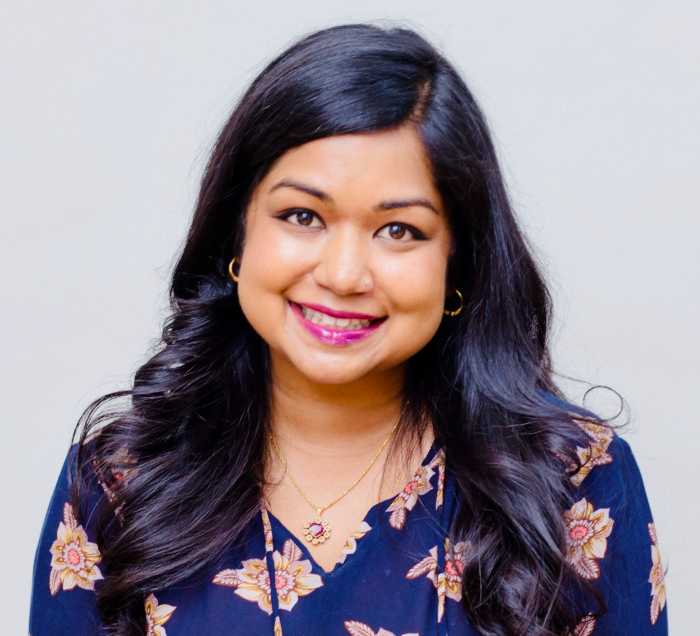
Jafreen Uddin
Executive Director, Asian American Writers' Workshop

Jafreen Uddin is the executive director of the Asian American Writers’ Workshop (AAWW). She is the first woman to lead the organization since its founding in 1991. Her career includes over a decade of experience working in the public sector, including prior roles at PEN America and the Brennan Center for Justice. She regularly volunteers her time with literary and social change organizations including serving as a literary council member for the Brooklyn Book Festival.
If you could give your younger-self advice, what would it be?
Trust yourself. It’s okay to be a little strange. And find your community.
Do you have any event/movie/music suggestions for our readers to check out in celebration of AAPI Heritage Month?
I’m certainly biased, but some of the best events featuring NYC’s AAPI writers can of course be found on the AAWW website, not just in May but every month of the year! Find us here. Some recent reads of mine include “My Beloved Life” by Amitava Kumar, “The Stone Home” by Crystal Hana Kim, and “Theophanies” by Sarah Ghazal Ali.
How has your heritage shaped the person you are today?
Embracing the multiple strands of my identity has not only helped me better understand myself but brought me closer to the people and communities I hold dearest. As a South Asian Muslim American daughter of immigrants, I’ve learned over time the importance of not just honoring my own ancestors but intentionally thinking about the type of ancestor I want to be. It is what drives me every single day.
What can New York policymakers do to support the AAPI-community in the short-term? In the long-term?
I urge New York policymakers to understand that the AAPI community is a big tent of diverse, dynamic, and distinct regional groups, and as such, to approach any support from a radically inclusive lens. Resources and support should be available across the spectrum of AAPI communities rather than a narrow few.
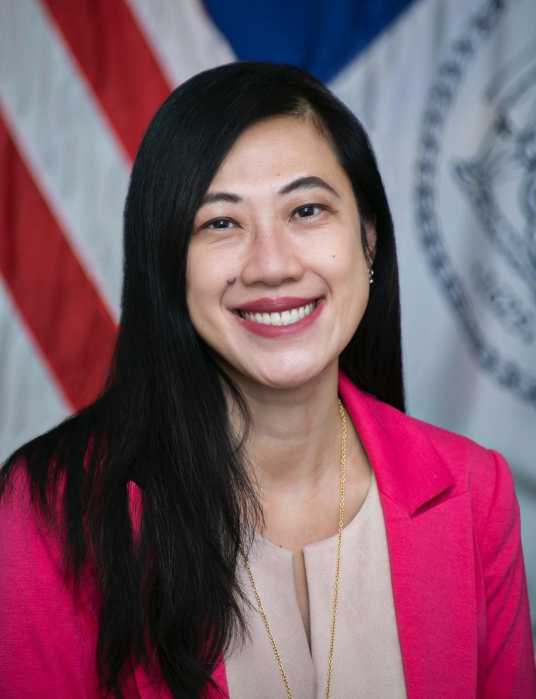
Sandra Ung
City Council Member, New York City Council

After escaping the Cambodian genocide as a child, Sandra Ung and her family immigrated to NYC when she was 7-years-old. Sandra attended local public schools, and earned her J.D. from Columbia Law School in 2001. Before joining the city council in 2002, Sandra worked as an attorney defending domestic violence survivors. She later served in government at the municipal, state and federal level, including most recently in the office of Congress Member Grace Meng.
If you could give your younger-self advice, what would it be?
The advice I would give my younger self is the same advice I give to young people when I visit schools in my district, and that is get involved in your local community anyway you can and give back. That could be through joining a civic association, community board, or just identifying a problem in your neighborhood and working with others to find solutions. That is how we create the next generation of leaders.
Do you have any event/movie/music suggestions for our readers to check out in celebration of AAPI Heritage Month?
“The Joy Luck Club” by Amy Tan is a defining book that helped millions understand the dreams, struggles, and dynamics of an immigrant family through the lens of multiple generations. Many of the book’s themes resonated with my friends who were being raised by immigrant parents in a country with different customs and values.
How has your heritage shaped the person you are today?
Growing up Asian American, I felt that pressure of being the “perpetual foreigner,” that no matter how much I assimilated into American culture, I would always be “Asian.” This taught me to overcome stereotypes and defy expectations, and I’m proud to be the first Asian American woman to represent District 20 in the New York City Council.
What can New York policymakers do to support the AAPI-community in the short-term? In the long-term?
In the short term, I believe that expanding language access in city government is one big step we can take so that people in the AAPI community feel heard and have full access to city government. Expanding access to local government goes hand-in-hand with inspiring civic participation in our immigrant communities. In the long term, we need civic-minded people in leadership positions who can relate to our shared experiences.
Ashok Varadhan
Co-Head of Global Banking & Markets, Goldman Sachs
Ashok Varadhan is co-head of global banking and markets and serves as a member of the management committee and firm-wide risk council at Goldman Sachs. Varadhan has been with Goldman since 1998. He became managing director in 2000, partner in 2002 and global head of macro trading in 2012. Varadhan earned bachelor’s degrees in mathematics and economics from Duke University.
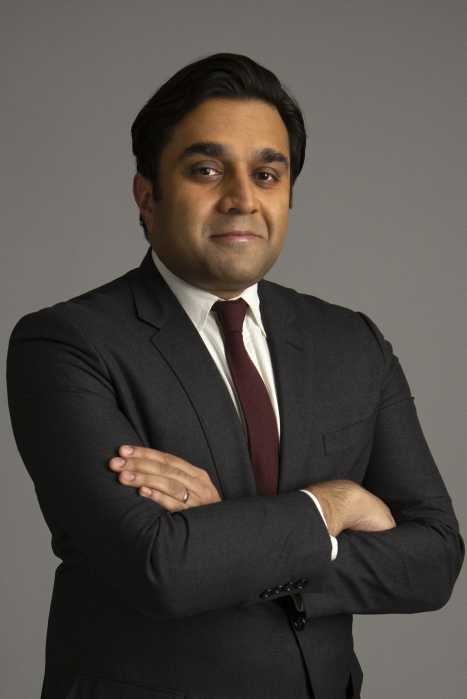
Ashwin Vasan
Commissioner, New York City Department of Health and Mental Hygiene

Dr. Ashwin Vasan, commissioner of the New York City Department of Health and Mental Hygiene, is a primary care physician, epidemiologist, and public health expert with nearly 20 years of experience working to improve physical and mental health, social welfare and public policy for marginalized populations in New York City, nationally, and globally. Dr. Vasan began his career in global health, working at Partners in Health and the WHO, and most recently served as the president and CEO of Fountain House. He serves as public health and clinical faculty at Columbia University.


